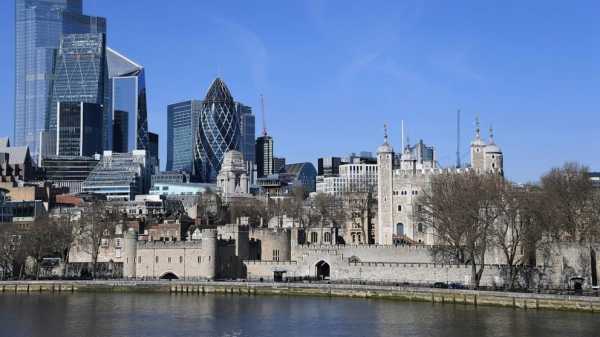
LONDON — China’s plans to build a new embassy near the Tower of London have stalled following local opposition to what would be the biggest diplomatic compound in Britain.
The borough of Tower Hamlets, the local government council in London responsible for the area, blocked the project in February, citing concerns about the increased risk of terror attacks, protests and traffic in an area visited by millions of tourists each year.
Chinese authorities had until Thursday to appeal the decision to the U.K. government but did not, Tower Hamlets said.
“If the applicant wanted to appeal through the public inquiry procedure then they would have already needed to have given notice to us as the local planning authority,’’ Tower Hamlets said in a statement. “We haven’t received any such notification from the applicant.”
China’s plans called for comprehensive redevelopment of a 5.2-acre site that was home to the Royal Mint from 1811 to 1968, demolishing some of the existing buildings and restoring others. The new embassy compound would include some 57,000 square meters (610,000 square feet) of floor space, including offices, a cultural exchange building and 225 apartments.
That’s about 18% bigger than the new U.S. embassy in London, which opened in 2018 with 48,000 square meters of space.
While Tower Hamlets planning officials recommended authorizing the project, the borough council voted on Feb. 10 to refuse planning permission.
The Chinese Embassy in London called on the British government to intervene.
“It is the international obligation of the host country to provide facilitations and support for the construction of diplomatic premises,” the embassy in a statement. “We urge the U.K. side to fulfill its relevant international obligations.”
British authorities did not comment on the Chinese Embassy proposal, which in theory could come before the central government, where the Department for Levelling Up, Housing and Communities oversees the planning system.
But the government said it takes its “obligations under the Vienna Convention on Diplomatic Relations extremely seriously and we will continue to do so,” and stressed that planning decisions are made by local councils, which give applicants the opportunity to appeal.
There is growing concern in the U.K. about Chinese investments in critical infrastructure, as well allegations that it has attempted to influence British politicians and university researchers.
The decision in February to block the embassy project came four months after a pro-democracy protester had to be rescued by police after he was dragged onto the grounds of the Chinese consulate in Manchester. After that incident, Britain’s foreign secretary summoned the Chinese ambassador’s deputy to his office and demanded an explanation.
The Tower Hamlets council said the proposed embassy compound would strain local police resources, increase road congestion and have a negative impact on the area surrounding Tower of London.
“The proposed embassy would result in adverse impacts on local tourism, due to concerns over the effect of potential protests, acts of terrorism and related security mitigation measures on the sensitive backdrop of nationally significant tourist attractions,” the council said in announcing its decision.
Sourse: abcnews.go.com






